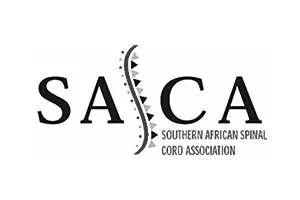Wave goodbye to waivers?
Wave goodbye to waivers?
Malcolm Lyons and Tzvi Brivik
It has become commonplace for service providers to attempt to shield themselves from legal actions for damages by consumers caused by the providers’ own reckless, negligent, wilful or malicious conduct. To achieve this, the consumer is required to sign a contract which contains a waiver or indemnity clause exempting the provider from liability.
Thus if a driver of a hired motor vehicle suffers injures due to badly worn tyres as a result of negligent maintenance by the car hire company, the company will rely on its exemption clause to escape liability. This was attempted; albeit unsuccessfully by Avis Car Hire in Fourie N.O vs Hansen 2001(2) SA 823. Similarly, if a weight falls on the head of a gym club member causing injury due to any cause, the gym will rely on its exemption clause to escape liability. The same applies generally to hospitals, package tour operators, hotels, some guesthouses, security companies, school outings, and many more.
When the joint writer of this article wished to hire a vehicle from Imperial Car Hire and deleted the exemption clause in the contract, Imperial refused to rent him a vehicle. Virgin Active Gyms refused him membership of their clubs for the same reason. What is the legal efficacy of these exemption clauses? The courts hold them to be binding provided that they are “plainly spelt out.” The exclusionary clause will be strictly interpreted, however, and read together with all the other provisions of the contract.
Proper interpretation of a disclaimer could mean that negligence is excluded but not gross negligence or wilfulness. The exclusion may also be struck down as being in contravention of a statutory provision or contra bonos mores (against public policy). Bonnie Lee Hircock, an American tourist was seriously injured by the negligent driving of a bus on an adventure tour arranged and conducted by Drifters Adventure Tours cc.
The indemnity form she had to sign when she arrived in Cape Town stated: “I acknowledge that it is entirely my responsibility to ensure that I am adequately insured for the above venture. I further absolve Drifters, their staff and management and affiliates of any liability whatsoever, and realise that I undertake the above venture entirely at my own risk.” There was no mention of either negligence or fault anywhere in the conditions and general information as set out by Drifters in their brochure and on the reverse side of the booking form. Drifters reliance on the indemnity was therefore declared bad in law, in a judgement by Selikowitz J (unreported) in the Cape High Court.
Judgement on an appeal to the Supreme Court of Appeal is awaited, but both in this case and when Avis Car Hire unsuccessfully relied on an exemption clause to escape liability for it own negligence, judges of appeal expressed surprise that “reputable” companies do not take responsibility for their wrongful acts. A typical exemption clause is that contained in the Imperial Car Hire Contracts which is in essence similar to those of Avis Car Hire ad reads: “We shall not be liable for any damage or loss, whether direct or indirect arising out of any defect in or mechanical failure or the safety of the vehicle or the driving or use thereof or caused by any fault of our, our agents or our servants nor for any indirect loss, consequential damages, loss of profits or special damages arising out of any of the aforegoing and for any breach by us of this agreement.
No warranties as to the condition, state of repair, performance capabilities, year of manufacture, odometer reading or anything else concerning the vehicle are given by us.” Justice Blieden, in Fourie N.O. vs Hansen, was highly critical of the Avis exemption clause: “It went against what any reasonable man would have expected, namely that those who purported to run a reputable car hire business in a reputable manner were not responsible for their breaches of contract…A party letting out vehicles has a duty to apply expertise in ascertaining and checking the conditions of such vehicles when it rents them out…
The renter or hirer of the vehicle from a reputable renting company cannot be expected to test the vehicle once he hires it.” “If one is sufficiently fortunate to have eyesight capable of reading the faint and small printing which characterises the terms and conditions printed on the reverse side of the document concerned, one would become aware that thee are a number of obligations to which the “renter” is biding himself.” When, however, C.G. Strydom was obliged to sign an exemption clause before receiving urgent medical attention at an Afrox Hospital, the Appeal Court upheld the waiver which was binding in its clear terms on the contracting parties and Afrox relied on it to defeat a claim for damages for injury due to the negligence of its nurses.
The Appeal Court in Afrox Health Care vs Strydom 2002(6) held that: “..persons who signed a written agreement without reading it did so at their own risk and were consequently bound by the provisions contained therein as if they were aware of them and had expressly agreed thereto… Today, exclusionary clauses in standard contracts were the rule rather than the exception. There was no reason in principle o differentiate between private hospital and other service providers.
The relevant clause in the admission document was accordingly not, objectively speaking, unexpected.” In the jurisdiction of most western countries, the legislature has intervened to declare unfair contract terms unlawful as these are weighted against the consumer. The prohibition is usually applicable to printed forms which cause “a significant imbalance in the parties’ rights and obligations arising under the contract to the detriment of the consumer” (UK Act). Avis for example does not have a similar clause in its UK or Australian contracts nor does Virgin Active in the UK. They take advantage of the absence of a prohibition in the South African law to exclude themselves from liability to the detriment of the consumer.
In November 2003 the attention of the Director of Consumer Investigations of the Department of Trade and Industry was drawn to the unfair terms, which we submitted constituted unfair business practice in terms of Consumer Affairs (Unfair Business Practice) Act (71 of 1988), as amended. That provides, inter alia, that if the Minister is “of the opinion that an unfair business practice exists or may come into existence and is not satisfied that the unfair business practice is justified in the public interest…” he may declare the unfair business practice to be unlawful (s12). On July 31 2006, the Consumer Investigations Directorate replied that the Department of Trade and Industry had published the Draft Protection Bill 2005 in which positive legislative steps are taken to ensure that consumers affected by unfair/unjust contract terms are protected. s50-58 deal with this.
If passed, the Act will go a long way to making companies responsible for their own negligent or wilful acts ad omissions which cause harm to consumers; make consumers bear the risks; or remove the consumers’ remedies in Law. Clause 53, for example, provides that a transaction is unfair or unjust if it is excessively one sided in favour of any person other than the consumer; or if the terms of the transaction are so adverse to the consumer as to be inequitable.
The Court may in these circumstances rescind or amend the contract. The time may be approaching when it may again be safe to be accepted as a member of Virgin Active Gym, or hire cars from major companies, or even enter certain hospitals.
The current position on objections to the con/arb process
Con/arb process - The Commission for Conciliation, Mediation[...]
Out of time? Think again – The CCMA and its rules
By Lara Keil (Candidate Legal Practitioner) under the[...]
RAF’s lodgement requirements: Claimants further prejudiced
By Lara Keil (Candidate Legal Practitioner) under[...]













